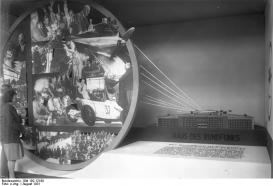This project investigates the relationship between radio, sound archiving, and the rise of radio studies (Rundfunkwissenschaft). Largely unknown today, Germany’s first radio studies institute was based at the University of Freiburg between 1939 to 1944, led by the linguist Friedrichkarl Roedemeyer (1894–1947). The institute gained substantial support, but was officially disbanded after 1945, with postwar radio researchers and archivists keen to downplay its existence and their own involvement in Nazi-era broadcasting, archiving, and knowledge production. The project shows that the radio institute was informed by an earlier model for a Sound Department (Lautabteilung) developed by Wilhelm Doegen in 1920s Berlin. This precedent draws attention to an influential concept of “science via radio” starting in the early 1920s, based on experimental practice and science communication strategies in broadcasting, along with an emergent concept of broadcast content as commodity objects and “sound documents.” Following the National Socialist takeover in 1933, an ideological investment in radio gave further impetus to its status as a politically significant cultural form worthy of costly archival storage, reproduction, and redistribution. The project critically investigates the legacy of Roedemeyer’s “science of radio” and its multidisciplinary research agenda centered on studio experiments, recording media, and sound archival practice.

Berlin Rundfunk stand, International Radio Exhibition 1931. Bundesarchiv
Project
(2017-2018)
